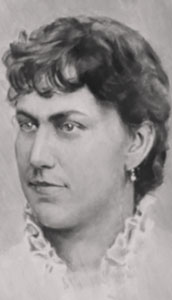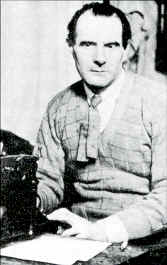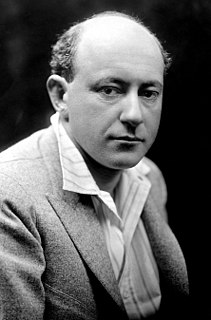A Quote by Ben Jonson
Money never made any man rich, but his mind. He that can order himself to the law of nature, is not only without the sense, but the fear of poverty.
Related Quotes
Solitude is the profoundest fact of the human condition. Man is the only being who knows he is alone, and the only one who seeks out another. His nature - if that word can be used in reference to man, who has ‘invented’ himself by saying ‘no’ to nature - consists in his longing to realize himself in another. Man is nostalgia and a search for communion. Therefore, when he is aware of himself he is aware of his lack of another, that is, of his solitude.
The only method of restoring the natural equality of dignity between men and women, lies in the demolishment of that elaborate theological structure which maintains that woman is made for the possession of man in a sense in which man is not made for woman, and that celibacy, per se, is a state of superior purity. Nature and common sense (not metaphysical sense) demonstrate that there is no good reason why any man or any woman should take, claim, or wield "lordship" over another.
Nature hath made men so equal in the faculties of body and mind, as that though there be found one man sometimes manifestly stronger in body, or of quicker mind than another, yet when all is reckoned together, the difference between man and man is not so considerable as that one man can thereupon claim to himself any benefit to which another may not pretend as well as he.
Man has made 32 million laws since THE COMMANDMENTS were handed down to Moses on Mount Sinai more than three thousand years ago, but he has never improved on God's law. THE TEN COMMANDMENTS are the principles by which man may live with God and man may live with man. They are the expressions of the mind of God for His creatures. They are the charter and guide of human liberty, for there can be no liberty without the law.
Seek the simplest in all things, in food, clothing, without being ashamed of poverty. For a great part of the world lives in poverty. Do not say, "I am the son of a rich man. It is shameful for me to be in poverty." Christ, your Heavenly Father, Who gave birth to you in the baptistery, is not in worldly riches. Rather he walked in poverty and had nowhere to lay His head.
When Heaven is about to confer a great office on a man, it first exercises his mind with suffering, and his sinews and bones with toil ; it exposes his body to hunger, and subjects him to extreme poverty ; it confounds his undertakings. By all these methods it stimulates his mind, hardens his nature, and supplies his incompetencies.
Money alone is only a mean; it presupposes a man to use it. The rich man can go where he pleases, but perhaps please himself nowhere. He can buy a library or visit the whole world, but perhaps has neither patience to read nor intelligence to see.... The purse may be full and the heart empty. He may have gained the world and lost himself; and with all his wealth around him ... he may live as blank a life as any tattered ditcher.
Perhaps down in his heart Okonkwo was not a cruel man. But his whole life was dominated by fear, the fear of failure and of weakness. It was deeper and more intimate that the fear of evil and capricious gods and of magic, the fear of the forest, and of the forces of nature, malevolent, red in tooth and claw. Okonkwo’s fear was greater than these. It was not external but lay deep within himself.
Mind you, I have had in my sojourn on earth as good a time of it as any man, so I can speak with some knowledge. A writer in the Manchester Guardian who is unknown to me lately described me as "the richest man in the world." That sounds a pretty big order, but when I come to think it out I believe he is not far wrong. A rich man is not necessarily a man with a whole pot of money but a man who is really happy. And I am that.
That in all capital or criminal prosecutions a man bath a right to demand the cause and nature of his accusation, to be confronted with the accusers and witnesses, to call for evidence in his favor, and to a speedy trial by an impartial jury of twelve men of his vicinage, without whose unanimous consent he cannot be found guilty; nor can he be compelled to give evidence against himself; that no man be deprived of his liberty, except by the law of the land or the judgment of his peers.
True it is, that he who has taken off his affection from the goods of this world has already sold all, and has made himself poor, so far as depends upon himself; but the fruit and the proof of this spiritual poverty are, patiently to endure the loss of worldly goods, and without any regret, when it pleases our heavenly Father that we should be despoiled of them.







































